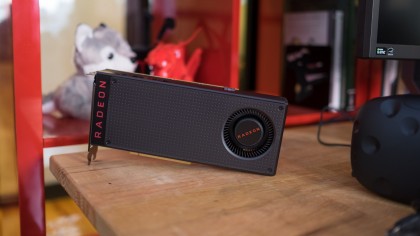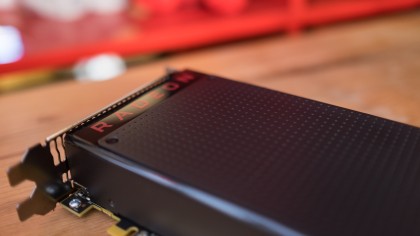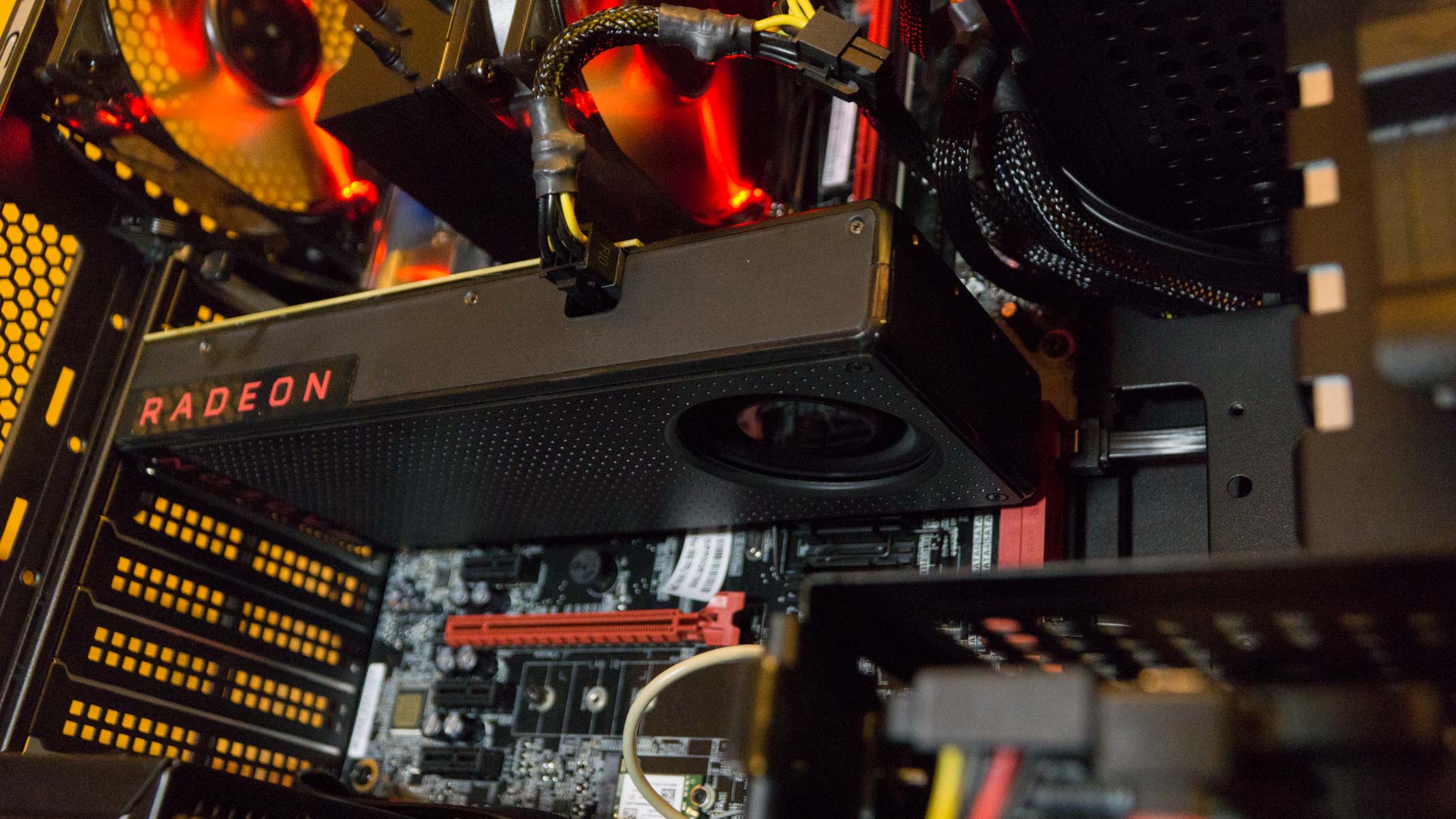TechRadar Verdict
AMD has returned with another value-driven card that delivers the goods. Whether you're looking to game at 60 fps at 1080p, hook up a 120Hz FreeSync monitor or even dip your toes into 1440p gaming, this card does it all without breaking the bank.
Pros
- +
Exceptional 1080p performance
- +
VR-ready
- +
GTX 980 performance for less
Cons
- -
WattMan clearly still in BETA
Why you can trust TechRadar
AMD's new Radeon RX 480 graphics card pivots around one goal: bringing high-end gaming and the virtual reality experience to a wider selection of PC enthusiasts and gamers.
And with over 40 VR headsets slowly making their way to market - including the HTC Vive and Oculus Rift - we're pretty convinced this card and others like it will play a huge factor in the graphical arms race that's about to ensue.
After all, virtual reality will only become a success if games developers and publishers feel confident funding titles that can sell to a wide audience, one that needs to be far greater than VR currently has.

Virtually capable
Does the RX 480 make that more likely to happen? Well, yes. For now, it's easily over the minimum spec for virtual reality. It performs well at 2,560 x 1440 pixel-resolution and astronomically at 1,920 x 1080, and we may see its pricing fall should Nvidia release its rumored GTX 1060 card.
Nvidia manufactures its new Pascal-based GTX 1070 and 1080 cards on a16nm FinFET process, whereas AMD's first sub-22nm offering uses 14nm. That's right - AMD's first offering to the sub-22nm Gods is this, the Radeon 480 8GB edition.
Coming in at a neat £215 (or US$240 - around AUS$323), this sweet little number is a cushy £60 (around $81, or AUS$108) less than the mighty, now value-oriented GTX 980. We're bringing that up for one reason: this reference card, with a slight tweak in the overclock settings, outperforms it.

All the good stuff
So, how do its specs measure up? Well, AMD's Radeon RX 480 comes packed with 2,304 stream processors (think the equivalent of Nvidia's CUDA cores), 36 compute units, 8GB of GDDR5 on a 256-bit bus enabling a minimum of 224 GB/s of bandwidth and a maximum boost clock registering up at 1,266 MHz; before you overclock, of course.
Sign up for breaking news, reviews, opinion, top tech deals, and more.
All in all it enables around 5.8 TFLOPS of performance, placing the card exactly where we'd expect it. AMD is also selling a 4GB variant of the card at £180 (or $199 - around AUS$325).

Zak is one of TechRadar's multi-faceted freelance tech journalists. He's written for an absolute plethora of tech publications over the years and has worked for Techradar on and off since 2015. Most famously, Zak led Maximum PC as its Editor-in-Chief from 2020 through to the end of 2021, having worked his way up from Staff Writer. Zak currently writes for Maximum PC, TechRadar, PCGamesN, and Trusted Reviews. He also had a stint working as Corsair's Public Relations Specialist in the UK, which has given him a particularly good insight into the inner workings of larger companies in the industry. He left in 2023, coming back to journalism once more. When he's not building PCs, reviewing hardware, or gaming, you can often find Zak working at his local coffee shop as First Barista, or out in the Wye Valley shooting American Flat Bows.
